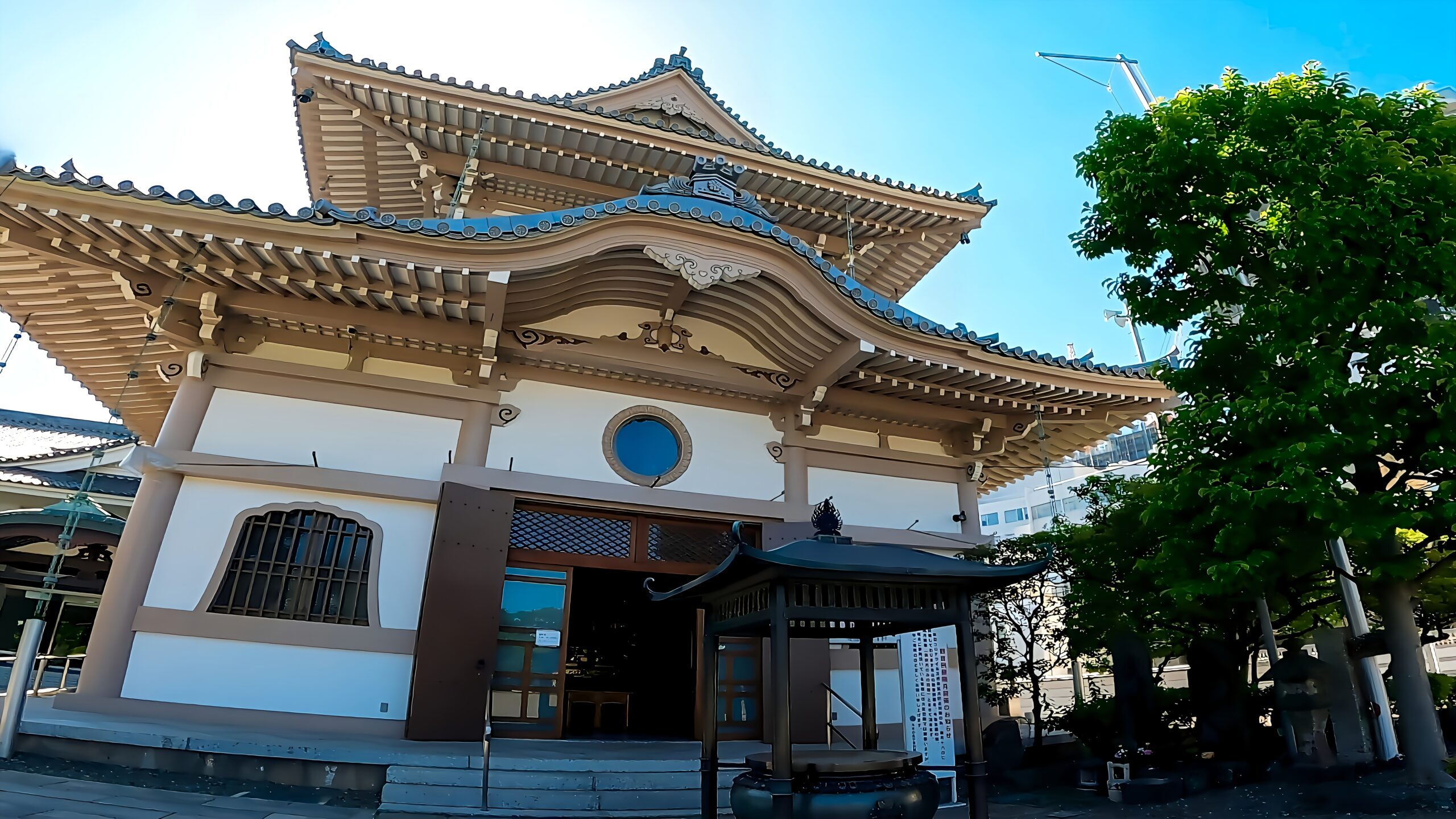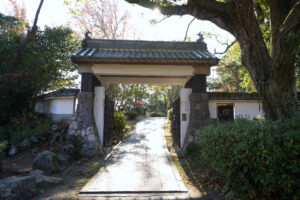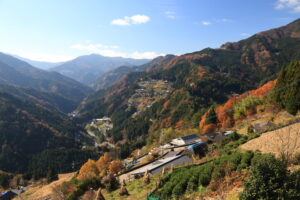Nestled in the tranquil forests of Fukui Prefecture, Eiheiji Temple stands as one of the most significant Zen Buddhist temples in Japan. Founded in the early 13th century, this temple serves as a thriving center for Zen practices and teachings. With its serene atmosphere and rich history, Eiheiji offers visitors a glimpse into the essence of Zen Buddhism, making it a unique destination for both spiritual seekers and cultural enthusiasts. As we embark on a journey through Eiheiji Temple, we will explore its historical roots, architectural beauty, and spiritual significance, as well as the daily life within its walls.
Exploring Eiheiji Temple: The Jewel of Zen Buddhism
Eiheiji Temple, or "Temple of Eternal Peace," is revered as one of the two main temples of the Soto school of Zen Buddhism, alongside Sojiji. Established by the esteemed Zen master Dogen, Eiheiji has become synonymous with Zen practice and philosophy. With its sprawling grounds, ancient trees, and meticulously maintained gardens, the temple provides an ambiance of deep tranquility, inviting visitors to immerse themselves in a world of reflection and contemplation.
As visitors ascend the temple steps, they are greeted by a striking entrance gate known as "Sanmon," which sets the tone for the sacred space that lies beyond. This grand gate serves as a threshold, marking the transition from the mundane to the divine. The temple complex itself houses numerous halls, meditation rooms, and living quarters for monks, all designed to facilitate a life of spiritual dedication.
The temple’s popularity extends beyond its architectural splendor; it is a living institution where Zen traditions are preserved and practiced daily. Eiheiji welcomes individuals from all walks of life, from seasoned practitioners to curious tourists, offering an opportunity to engage with Zen teachings in a meaningful way.
Visitors often find solace in the tranquil surroundings, where the sounds of nature harmonize with the rhythmic chants of monks. This unique environment fosters a deep connection between the temple and its guests, making Eiheiji a true jewel of Zen Buddhism and a sanctuary for the soul.
A Brief History of Eiheiji: Roots in the 13th Century
The foundation of Eiheiji Temple traces back to 1244 when Dogen Zenji, the founder of the Soto school, established this sanctuary as a place for serious meditation and study. Dogen, who had traveled to China to deepen his understanding of Zen, sought to create a space where practitioners could engage in rigorous training and embody the principles of Zen in their daily lives.
From its inception, Eiheiji has played a pivotal role in shaping Zen Buddhism in Japan. Dogen’s teachings emphasized the importance of zazen (seated meditation) and mindfulness in every aspect of life, principles that continue to resonate within the temple today. The temple grew in stature over the centuries, becoming a central hub for Zen learning and practice, attracting monks and laypeople alike.
Throughout its history, Eiheiji has withstood the test of time, enduring various challenges, including natural disasters and wars. Despite these adversities, the temple has remained a bastion of Zen philosophy, preserving its teachings and practices through generations. This resilience speaks to the deep spiritual commitment of its practitioners and the enduring relevance of Dogen’s vision.
In the modern era, Eiheiji has adapted to contemporary society while remaining steadfast in its commitment to traditional Zen practices. The temple continues to welcome visitors from around the globe, fostering a dialogue between ancient wisdom and modern life. As such, Eiheiji’s rich history serves as a foundation for its ongoing journey as a beacon of Zen Buddhism.
Architectural Wonders: The Design of Eiheiji Temple
Eiheiji Temple’s architectural design reflects the principles of Zen aesthetics, characterized by simplicity, harmony, and a deep connection to nature. The layout of the temple complex is intentionally designed to guide practitioners through a journey of self-discovery and mindfulness, with each structure serving a specific purpose in the monastic life.
The main hall, known as "Hatto," is where monks gather for teachings and ceremonies. Its wooden beams and tatami mat flooring evoke a sense of warmth and tranquility, creating an ideal environment for contemplation. The subtle use of natural light enhances the hall’s serene atmosphere, allowing visitors to connect with the space on a deeper level.
Adjacent to the Hatto is the "Zendo," where zazen meditation takes place. This sacred room is designed for minimal distraction, encouraging practitioners to focus inwardly. The simplicity of the Zendo’s design reinforces the Zen principle of "less is more," inviting individuals to shed the clutter of the mind and engage in deep meditation.
Throughout the temple grounds, visitors will find beautifully manicured gardens, which serve as both aesthetic enhancements and meditative spaces. These gardens are designed to reflect the changing seasons, offering a dynamic environment that mirrors the impermanence of life—a core tenet of Zen philosophy.
The craftsmanship evident in Eiheiji’s architecture tells the story of dedication and reverence for tradition. Every structure, from the thatched roofs to the stone pathways, embodies a sense of harmony with the surrounding nature. This architectural beauty not only attracts visitors but also inspires a profound appreciation for the principles of Zen Buddhism.
The Spiritual Significance of Eiheiji in Zen Practice
Eiheiji Temple serves as a spiritual sanctuary, embodying the core principles of Zen Buddhism. At its heart lies the practice of zazen, a form of seated meditation central to the Soto school. Through zazen, practitioners learn to cultivate awareness, focus their minds, and embrace the present moment—a process that ultimately leads to deeper insights and spiritual growth.
The temple functions as a training ground for monks, where rigorous schedules and disciplined practices reinforce the importance of mindfulness and self-awareness. Daily rituals, including chanting and communal meals, foster a sense of community and collective purpose, enhancing the spiritual experience for all involved.
Eiheiji’s spiritual significance extends beyond its walls, as it serves as a beacon of hope and guidance for those seeking enlightenment. The teachings of Dogen, which emphasize the interconnectedness of all beings and the importance of living authentically, resonate deeply within the temple’s practices. This philosophy encourages individuals to cultivate compassion and understanding in their everyday lives.
Furthermore, Eiheiji acts as a bridge between the past and the present, transmitting ancient wisdom while remaining relevant to contemporary seekers. The temple hosts various workshops, retreats, and teachings that invite individuals from diverse backgrounds to explore Zen practices and integrate them into their lives.
Through its unwavering commitment to spiritual growth, Eiheiji Temple reinforces the idea that Zen is not merely a practice but a way of life. Its teachings and environment inspire visitors to embark on their own journeys of self-discovery and transformation.
Daily Life at Eiheiji: Monastic Routines Unveiled
The daily life of monks at Eiheiji Temple is characterized by a rigorous yet fulfilling routine that blends work, study, and meditation. Rising before dawn, monks begin their day with zazen, allowing the stillness of the early morning to guide their practice. This quiet time sets a contemplative tone for the day ahead.
Following meditation, the monks engage in temple chores, known as "samu." This practice is not merely about completing tasks; it is viewed as an opportunity to cultivate mindfulness and presence in every action. Whether sweeping the temple grounds or preparing meals, each task is approached with the same intention and care as zazen.
Communal meals are an essential aspect of monastic life at Eiheiji. Meals are typically served in silence, allowing monks to focus on the nourishment they receive. This practice underscores the value of gratitude and awareness, reminding practitioners to appreciate the sustenance that sustains their physical and spiritual journeys.
Afternoons at the temple are often reserved for study and discussion, where monks delve into Dogen’s writings and explore the teachings of Zen Buddhism. This intellectual engagement complements their meditation practice, fostering a well-rounded understanding of their spiritual path.
The daily routines at Eiheiji Temple exemplify the integration of work and practice, highlighting the belief that every action can be a form of meditation. This holistic approach to monastic life allows monks to deepen their connection to themselves, each other, and the world around them.
Zen Meditation: Experiencing Zazen at Eiheiji
Zazen, the cornerstone of Zen practice, is a transformative experience that visitors to Eiheiji Temple are encouraged to engage in. This seated meditation allows individuals to quiet their minds, cultivate awareness, and explore the depths of their consciousness. At Eiheiji, zazen is not just a practice but a gateway to experiencing the essence of Zen.
In the tranquil Zendo, participants are guided through the process of zazen by experienced monks. The atmosphere is one of profound stillness, inviting practitioners to focus on their breath and the sensations within their bodies. This focus fosters a sense of grounding, enabling individuals to connect with the present moment fully.
The practice of zazen at Eiheiji emphasizes the importance of posture and breath. Monks demonstrate the correct seated position, encouraging participants to find balance and stability in their bodies. This attention to form not only enhances the meditation experience but also instills a sense of discipline and respect for the practice.
For newcomers, zazen may initially present challenges as the mind grapples with distractions and restlessness. However, experienced instructors provide support and encouragement, reminding practitioners that meditation is a journey, not a destination. The process of learning to be present with one’s thoughts offers valuable insights into the nature of the mind.
As participants engage in zazen, they often report feelings of profound peace and clarity. This transformative experience allows individuals to access deeper levels of consciousness and self-awareness, reinforcing the notion that Zen meditation is a vital practice for those seeking personal and spiritual growth.
Seasonal Festivals: Celebrating Traditions at Eiheiji
Eiheiji Temple is not only a center for meditation and study but also a vibrant hub of cultural and spiritual celebrations. Throughout the year, the temple hosts various seasonal festivals that reflect the deep-rooted traditions of Zen Buddhism and Japanese culture. These events provide an opportunity for practitioners and visitors to come together in a spirit of community and celebration.
One of the most significant festivals is the "Shobai," a ceremony held in the spring to honor the teachings of Dogen. This event includes special rituals, teachings, and communal meals, inviting participants to reflect on the importance of Dogen’s legacy in their lives. The atmosphere is filled with joy and reverence, as the teachings are celebrated through song, dance, and shared stories.
In autumn, Eiheiji hosts the "Mizuko Kuyo," a memorial service for deceased children. This poignant festival honors the spirits of the departed and provides a space for healing and remembrance. Participants engage in rituals that include offerings of flowers and prayers, fostering a deep sense of compassion and connection among attendees.
The temple also observes the "Obon" festival, which honors ancestors and is marked by various ceremonies, including lantern lighting and communal gatherings. This celebration emphasizes the importance of family and community, reinforcing the interconnectedness of all beings—a fundamental concept in Zen philosophy.
These seasonal festivals not only enrich the spiritual life of the temple but also foster a sense of belonging among participants. Visitors often leave these events feeling uplifted and inspired, having experienced the warmth of community and the beauty of Zen traditions.
Engaging with Nature: Eiheiji’s Serene Surroundings
Eiheiji Temple is enveloped by lush forests and serene landscapes, creating a harmonious relationship between the temple and its natural environment. This connection to nature is integral to the Zen experience, as it encourages practitioners to cultivate mindfulness and appreciation for the world around them.
The temple grounds are meticulously maintained, featuring walking paths, gardens, and ponds that reflect the changing seasons. Each season brings a unique beauty, from the vibrant cherry blossoms in spring to the rich hues of autumn foliage. Visitors are invited to explore these natural wonders, allowing the tranquility of the surroundings to deepen their meditation practice.
Nature is not merely a backdrop for Eiheiji; it is a vital component of the Zen experience. Monks often engage in outdoor practices, such as walking meditation, which allows them to connect with the earth and cultivate awareness of each step. This active engagement with nature reinforces the idea that Zen is not confined to the Zendo but extends into every aspect of life.
The surrounding forests also serve as a sanctuary for various wildlife, adding to the temple’s serene atmosphere. Visitors may encounter deer, birds, and other creatures, reminding them of the interconnectedness of all living beings. Such encounters evoke a sense of wonder and gratitude, reinforcing the teachings of compassion and mindfulness.
Eiheiji’s environment provides a perfect backdrop for spiritual growth, inviting individuals to immerse themselves in the beauty of nature while engaging in Zen practices. This connection to the natural world serves as an essential reminder of the importance of nurturing both the mind and the environment in one’s spiritual journey.
The Role of Eiheiji in Modern Zen Buddhism
In today’s fast-paced world, Eiheiji Temple stands as a beacon of hope and guidance for those seeking solace and spiritual growth. As the interest in mindfulness and meditation continues to rise, Eiheiji plays a pivotal role in introducing Zen practices to a broader audience. The temple’s commitment to preserving traditional teachings while adapting to modern needs makes it a vital institution in contemporary Zen Buddhism.
Eiheiji offers workshops, retreats, and educational programs aimed at individuals from diverse backgrounds, providing opportunities to engage with Zen teachings in meaningful ways. These programs often attract not only seasoned practitioners but also newcomers eager to explore the transformative power of meditation and mindfulness.
Through its outreach efforts, Eiheiji fosters a sense of community among practitioners, encouraging individuals to share their experiences and insights. The temple serves as a platform for dialogue, allowing for the exchange of ideas and perspectives on Zen practice in the modern context.
Moreover, Eiheiji’s influence extends beyond its walls, as its teachings resonate with those seeking to integrate Zen principles into their daily lives. The emphasis on mindfulness, compassion, and authentic living encourages individuals to cultivate a deeper connection to themselves and the world around them.
As modern society grapples with stress and disconnection, Eiheiji’s role as a spiritual sanctuary becomes increasingly significant. Its teachings and practices offer pathways for self-discovery, healing, and personal transformation in a rapidly changing world.
Visitors’ Perspectives: Stories from Eiheiji Temple
Visitors to Eiheiji Temple often leave with profound experiences and insights that shape their understanding of Zen Buddhism. Many describe their time at the temple as a transformative journey, with moments of clarity and peace that linger long after their departure. These narratives highlight the temple’s ability to touch the hearts and minds of those who enter its sacred space.
One visitor recounts their experience of participating in zazen for the first time, describing the initial challenges of quieting the mind. However, as the meditation deepened, they reported feelings of profound stillness and connection to the universe. This transformative experience ignited a passion for Zen practices that continues to influence their daily life.
Another traveler shares the impact of the communal meals at Eiheiji, where silence and gratitude filled the air. They found this practice to be a powerful reminder of the importance of mindfulness in eating and the interconnectedness of all beings. The shared experience fostered a deep sense of community among participants, transcending cultural and language barriers.
Visitors often express their appreciation for the temple’s natural surroundings, describing long walks through the gardens as moments of reflection and solace. Many feel that the beauty of nature enhances their spiritual journey, allowing them to connect with both the temple and themselves on a deeper level.
Eiheiji Temple leaves a lasting imprint on those who visit, creating a mosaic of stories that reflect the diversity of experiences within the Zen tradition. These narratives serve as a testament to the temple’s impact, inspiring individuals to incorporate the teachings of Zen into their own lives.
Preserving Tradition: Eiheiji’s Impact on Future Generations
As a pillar of Zen Buddhism, Eiheiji Temple is dedicated to preserving the rich traditions and teachings established by its founder, Dogen Zenji. The temple’s commitment to maintaining these practices ensures that future generations will continue to benefit from the wisdom of Zen philosophy. Through its educational programs and outreach initiatives, Eiheiji fosters a deep appreciation for the traditions of Zen among both monks and laypeople.
The temple serves as a training ground for novice monks, imparting the essential teachings and practices necessary for their spiritual growth. This mentorship not only preserves the lineage of Zen but also cultivates a new generation of practitioners who are equipped to carry on these traditions.
Eiheiji also actively engages with the community, offering programs that invite individuals to explore Zen teachings in their own lives. By making these practices accessible, the temple nurtures a broader understanding of Zen and its relevance in contemporary society. This outreach fosters a sense of shared responsibility for preserving the teachings of Dogen and the Soto school.
Moreover, the temple’s commitment to sustainability and environmental stewardship reflects Zen principles in action. Eiheiji emphasizes the importance of caring for the earth, encouraging individuals to cultivate a mindful relationship with nature. This focus on environmental consciousness serves as a vital aspect of Zen practice, ensuring that future generations inherit a world that is both spiritually and ecologically rich.
As Eiheiji Temple continues to adapt to modern society while remaining rooted in tradition, its impact on future generations remains profound. The temple’s teachings and practices inspire individuals to embark on their own spiritual journeys, fostering a legacy of compassion, mindfulness, and interconnectedness.
Eiheiji Temple stands as a testament to the enduring legacy of Zen Buddhism, offering a sanctuary for those seeking spiritual growth and inner peace. With its rich history, stunning architecture, and deep connection to nature, Eiheiji invites visitors to explore the essence of Zen in a meaningful way. As the temple continues to play a vital role in modern spiritual practice, it remains a beacon of hope and inspiration for all who enter its sacred grounds. Through its commitment to preserving tradition and fostering community, Eiheiji Temple ensures that the teachings of Zen will resonate for generations to come.








